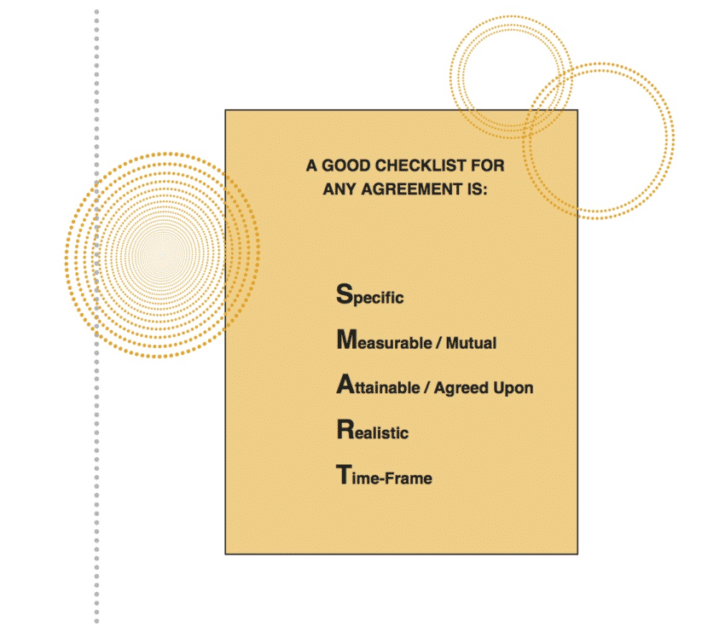Co-Creating a Vision and Action Plan (Cont.)
5. Forming the Agreement
This can be one of the first really exciting stages of the project (though it sometimes can feel tedious too). As prospective partners, you have taken some time to get to know each other, share and combine your visions, and gotten down to the nitty gritty details of creating a project proposal and action plan. You now feel confident that you have discussed enough details and have a set of mutually agreed-upon expectations regarding roles, responsibilities, and contributions that you are now ready to formalize the understanding.
If it is a very informal, private collaboration or partnership you may not feel the need for a written agreement or memo of understanding or contract. If, however, any financial exchanges or fundraising is involved and/or it is a public collaboration, you are wise to capture your agreement and understanding in a written document.
This document and record is also very useful in preventing (not eliminating) conflict. As the project gets underway all partners have this document, to go back to. You may find as you get into the implementation of the project that a new issue or detail arises and gets negotiated. If it is important or significant you may want to revise and update your contract by adding the new understanding.
If the project is a significant investment (of time and energy) or spread over a longer period of time because of organizational requirements, you may want to seek or utilize legal resources. They can offer counsel/advise and/or help write.
You may want to find a contract template or model of a similar project as a reference to guide you and potentially save you time. However, it is often very beneficial to craft and articulate your own unique contract. If you do not have anyone experienced with contracts at the table, you may want to bring that resource to this specific task and stage.
In the absence of a written agreement (email record can serve as a written agreement) your verbal understandings or agreements are legally binding.

